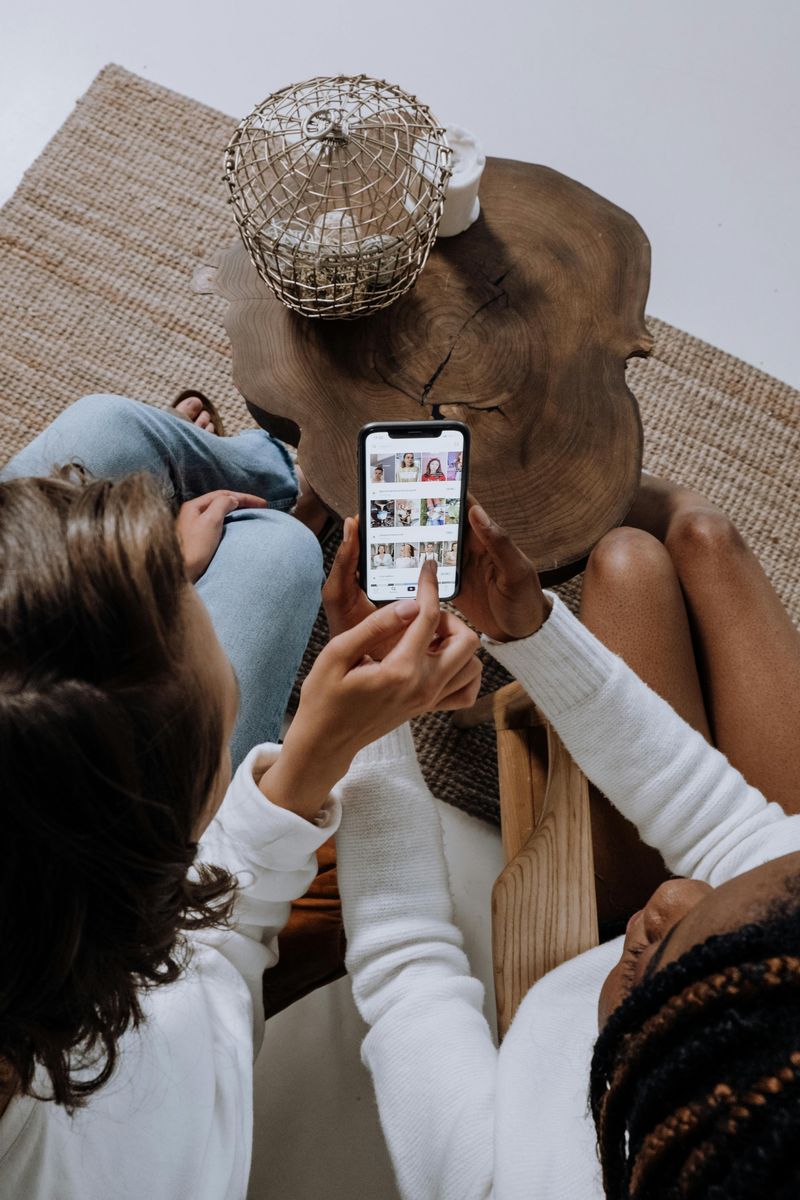8 Clear Signs You May Be Oversharing — and What to Do About It

We’ve all had those moments where we’ve shared something and immediately thought, ‘Why did I say that?’ Oversharing happens to everyone, but when it becomes a pattern, it can damage relationships and your reputation. Learning to recognize when you’re giving away too much information is the first step toward healthier communication. Here are eight signs you might be oversharing and practical ways to rein it in.
1. Sharing Sensitive Personal Information in Casual Settings

You’re chatting with a coworker you barely know when suddenly you find yourself describing your recent divorce drama or financial troubles. The casual coffee break has unexpectedly turned into your personal therapy session.
People who overshare often blur the lines between appropriate topics for close friends versus acquaintances. This boundary confusion happens because sharing creates temporary emotional relief and connection.
To address this habit, create a mental checklist before sharing: ‘Would I be comfortable with everyone knowing this information?’ Practice the pause—wait five seconds before diving into personal territory. Start small conversations with neutral topics like current events or shared interests instead of immediately jumping to intimate details.
2. Disclosing Details Without Considering the Audience

The room falls awkwardly silent after you finish describing your medical procedure in graphic detail during a dinner party. Your audience’s uncomfortable expressions tell you everything you need to know about your social misstep.
Effective communicators adjust their content based on who’s listening. Oversharing often happens when we fail to read the room or consider whether our information is appropriate for the specific relationship level.
Start practicing audience awareness by categorizing your relationships: inner circle, friends, acquaintances, and public. Create mental folders of topics appropriate for each group. Before sharing something personal, quickly assess which category your listener falls into. Remember that building intimacy happens gradually—not all at once with an information dump.
3. Receiving Signs of Discomfort from Others

Your friend’s eyes dart around the room as you launch into minute details about your relationship problems. She checks her phone repeatedly, shifts in her seat, and offers only brief responses like “hmm” and “oh, wow.”
These non-verbal cues—averted gazes, physical distance, subject changes, or suddenly busy schedules—are often polite signals that your sharing has crossed a line. Many people won’t directly tell you you’re oversharing because they don’t want to hurt your feelings.
Become a body language detective. Practice pausing mid-conversation to notice others’ reactions. Are they engaged or withdrawing? If you spot discomfort signals, gracefully pivot the conversation with “But enough about that—how are things with you?” This redirection shows emotional intelligence and helps maintain balanced conversations.
4. Posting Excessive Personal Updates Online

Your social media feed reads like an open diary—complete with relationship status updates, emotional breakdowns, and blow-by-blow accounts of personal conflicts. Friends have started reaching out privately, concerned about how much you’re revealing online.
The digital age makes oversharing particularly dangerous because your words can reach unintended audiences and remain accessible indefinitely. What seems like harmless venting can affect your professional reputation, relationships, and even personal safety.
Implement the 24-hour rule: draft posts but wait a full day before publishing anything emotional or personal. Create separate private channels for processing feelings—like a journal or trusted therapist. Before posting, ask yourself: “Would I be comfortable with my boss/future employer/grandmother seeing this?” Remember that genuine connection often happens offline, not through broadcasting personal details.
5. Talking More Than Listening in Conversations

The conversation has been going for twenty minutes, and you suddenly realize you’ve been dominating it completely. Your friend hasn’t managed to get more than a few words in edgewise while you’ve shared your entire life story.
Conversation imbalance is a classic sign of oversharing. Healthy dialogue resembles tennis—a back-and-forth exchange where both parties participate equally. Monopolizing discussions with personal details often stems from anxiety, excitement, or simply not developing listening skills.
Try the 50/50 rule: aim to listen half the time and speak half the time. Count to three before responding to ensure the other person has finished their thought. Ask follow-up questions about what others share instead of immediately relating it back to your experiences. Practice noticing when conversations tilt too far toward your personal disclosures.
6. Feeling Regret or Vulnerability After Sharing

“Vulnerability hangover” strikes again—that sinking feeling in your stomach after revealing too much about yourself. You lie awake replaying the conversation, cringing at how much personal information spilled out during what should have been a casual interaction.
This emotional aftermath is your internal warning system signaling boundary violations. While healthy vulnerability builds connections, oversharing often leaves you feeling exposed rather than authentically connected.
Honor these feelings as important feedback rather than just embarrassment. Create a personal sharing inventory by noting which topics consistently trigger regret. Practice prepared vulnerability instead—thoughtfully deciding beforehand what you’re comfortable revealing in specific contexts. Remember that true intimacy develops through mutual, gradual disclosure, not one-sided information dumps that leave you feeling exposed.
7. Sharing to Seek Validation or Attention

You notice a pattern: whenever conversation lulls or attention shifts away, you drop a personal bombshell that pulls focus back to you. The more shocking or dramatic the revelation, the more attention it guarantees.
Using personal disclosures primarily as attention tools suggests emotional needs that aren’t being met through healthier channels. While everyone enjoys validation, consistently mining your personal life for dramatic material can damage your relationships and emotional health.
Explore the emotional needs driving your oversharing. Are you seeking reassurance, connection, or validation? Find alternative ways to meet these needs—through developing skills, helping others, or quality time with supportive friends. Practice sitting comfortably in conversation lulls without filling them with personal revelations. Remember that lasting respect comes from balanced relationships, not shock value.
8. Ignoring Boundaries or Social Context

During a job interview, you find yourself explaining your complicated dating history to your potential boss. The interviewer’s raised eyebrows and attempts to redirect the conversation go completely unnoticed as you continue sharing inappropriate details.
Context blindness—the inability to adjust communication based on social settings—is a hallmark of chronic oversharing. Different environments have different unwritten rules about appropriate disclosure levels. Professional settings generally require more restraint than casual gatherings.
Create a mental map of context-appropriate sharing. Professional settings warrant minimal personal disclosure, while close friendships allow more. Before entering different social situations, briefly remind yourself of the appropriate sharing level. If uncertain, observe others’ disclosure levels before matching them. When in doubt, err on the side of privacy—you can always share more later if appropriate.

Comments
Loading…